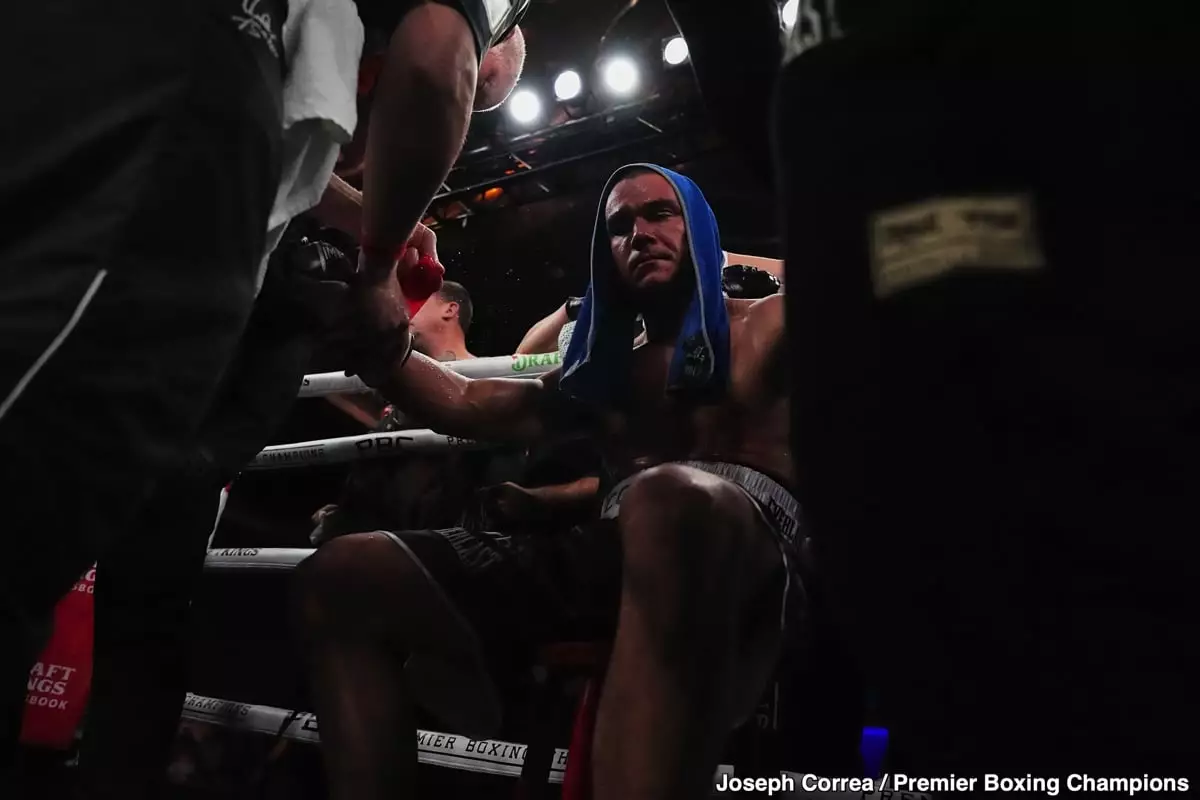Tim Tszyu at a Crucial Crossroads After Knockout Setback
The world of boxing is an exhilarating arena, yet it can be quite unforgiving. For Tim Tszyu, the recent third-round knockout loss to IBF junior middleweight champion Bakhram Murtazaliev marked a significant turning point in his career. At 29, Tszyu is far from running out of options or potential. However, he finds himself at a critical juncture where introspection and strategic adjustments in his boxing approach are essential for future success. This period could define the trajectory of his career in the years to come.
Standing with a record of 24 wins and 2 losses, with 17 victories by knockout, Tszyu’s statistics are impressive. Yet, the magnitude of his defeat against Murtazaliev (23-0, 17 KOs) serves as a stark reminder that resilience is not merely about physical prowess. It is equally about strategic acumen inside the ring. The fight, held at the Caribe Royale Resort in Orlando, Florida, exposed some glaring deficiencies in Tszyu’s boxing game—most notably in head movement and defensive technique.
Former world champion Keith Thurman shed light on the challenges Tszyu faces post-defeat. He emphasized that Tszyu must be discerning in how he and his team approach future matches, considering the evident gaps that led to his defeat. This acknowledgment from a seasoned professional underscores the necessity of recalibrating strategies and reinforcing fundamental skills before attempting to re-engage with the elite of the division. It’s a time for self-evaluation and development if he is to thrive again.
Key Takeaways
- Tszyu’s defeat highlights the need for introspection and strategic adjustment.
- Improving defensive techniques and tactical retreats are crucial.
- Seeking new training perspectives could foster growth and evolution.
The Fight That Changed Everything
During the fight against Murtazaliev, Tszyu’s primary weaknesses were apparent—a lack of effective head movement and excessive reliance on power shots. Engaging an opponent with Murtazaliev’s size and punching ability without adapting proved disastrous. Instead of leveraging agility and footwork, Tszyu was caught in an aggressive strategy that ultimately led to his downfall. Such encounters remind us that sometimes strength lies in adopting more tactical approaches rather than brute force alone.

His response to being knocked down twice in the second round signifies a broader concern—the tendency to march forward without proper tactical retreat. Instead of reassessing and adopting a defensive stance when necessary, Tszyu chose to continue his aggressive approach. This decision opened him up to a barrage of punches that culminated in a third knockdown. It’s clear that Tszyu must reconsider his methodology in the ring, focusing on strategic retreats and protective maneuvers that maintain his safety.
The Path Forward: Rebuilding Strategy
Going forward, it’s imperative for Tszyu to adopt a more conservative and defensive mindset. One critical aspect of his recovery could involve seeking a new trainer who emphasizes technical skill development. While familiarity often breeds comfort, it can also lead to stagnation if the fighter isn’t being pushed to adapt and evolve. New perspectives in training might provide the edge needed to refine existing skills and explore untapped potential within himself.
A possible solution lies in taking a step back by fighting less dangerous opponents initially. This would give Tszyu the opportunity to hone his skills and rebuild confidence without diving immediately back into top-tier competition. A series of fights against opponents who are not only weaker but also less explosive could help him reintegrate fundamental aspects of boxing he seems to have neglected. It’s about rebuilding slowly but surely towards regaining form.
Final Thoughts
This period offers an ideal moment for Tszyu to reflect on lessons learned through hardship. Analyzing every aspect of his training, boxing techniques, and even fight choices will be crucial for advancement. There’s consensus among boxing experts that decision-making regarding opponents could have been more strategic—particularly choosing someone as formidable as Murtazaliev at this stage of his career was bold but perhaps premature.

Moreover, Tszyu’s promoters must carefully consider matchmaking going forward; taking unnecessary risks now could lead to further setbacks. By ensuring nurturing environments with growth-oriented fighting opportunities, Tszyu can gradually adjust techniques while avoiding immediate high-level challenges’ looming threats. In competitive landscapes like boxing’s arena today—setbacks often serve powerful catalysts toward positive change when faced correctly alongside proper planning strategies set forth ahead time itself!
Tim Tszyu
boxing strategy
sports recovery
defensive techniques


Leave a Reply